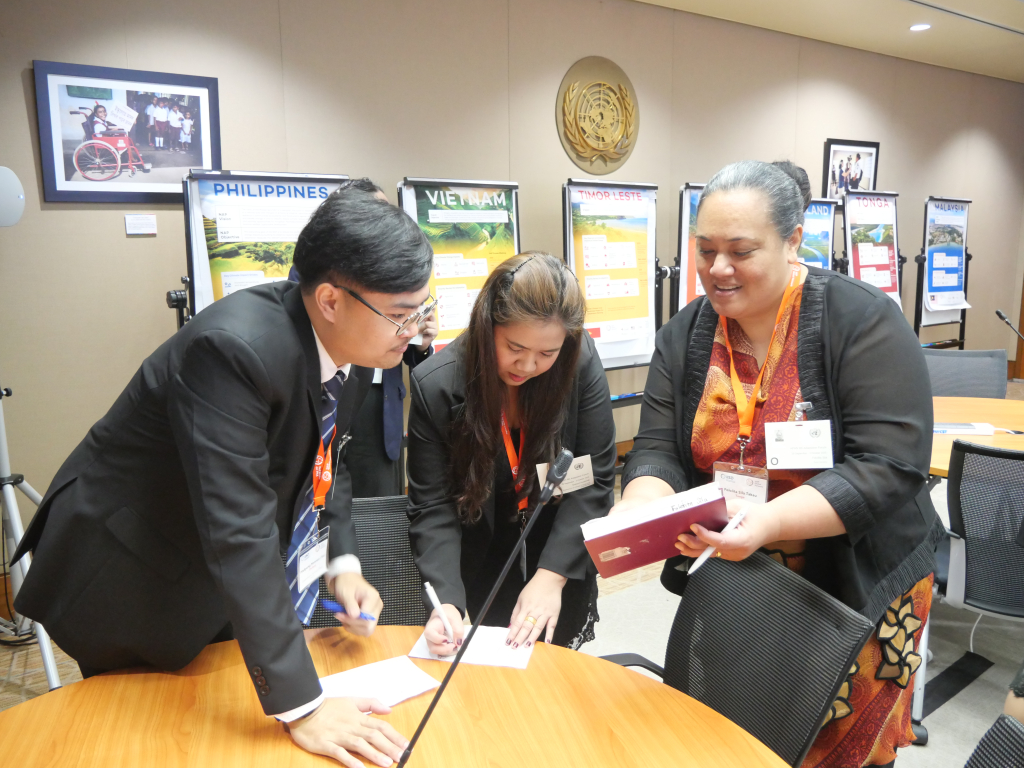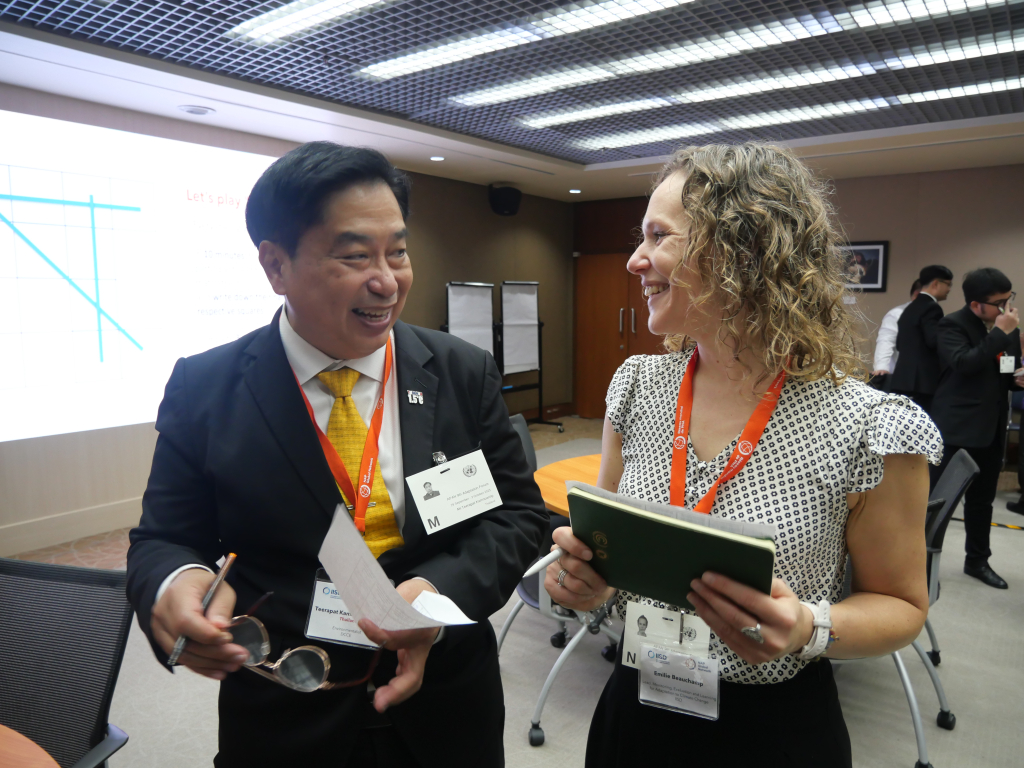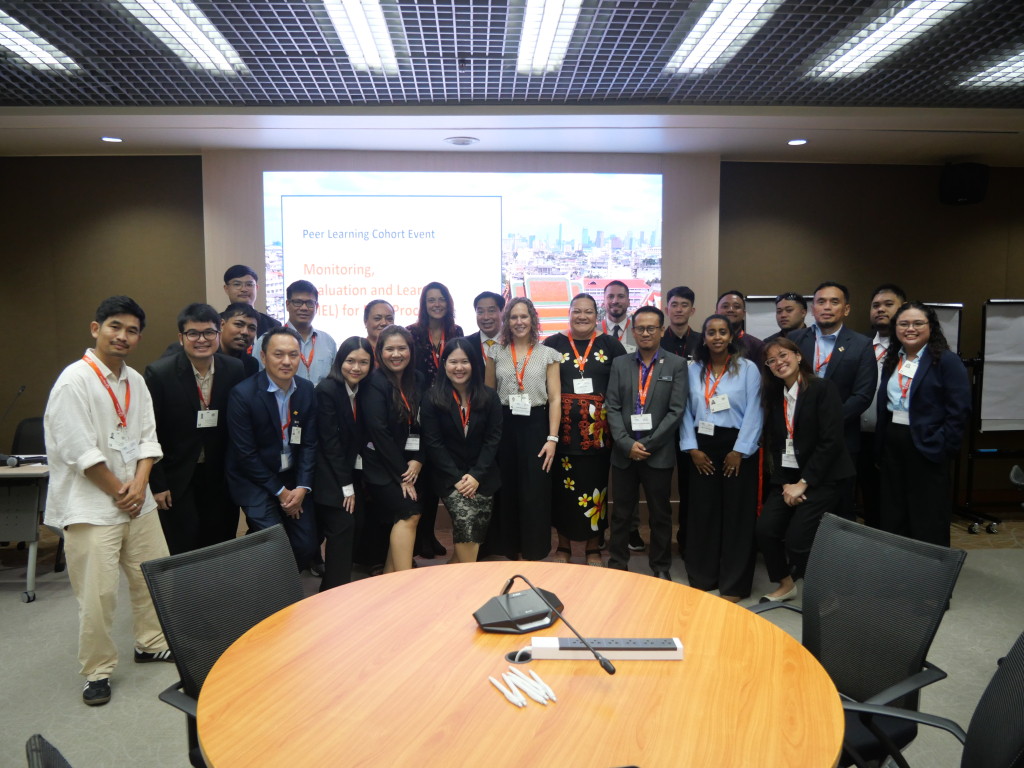
Bangkok, Thailand, September 29 – From September 29 to 30, the Government of Thailand is hosting a regional dialogue for seven Asia-Pacific countries on climate change adaptation and the importance of continuous tracking, assessment, and learning activities to strengthen climate resilience against their unique vulnerabilities and risks.
On the sidelines of the 9th Asia-Pacific Adaptation Forum, government representatives from Thailand, Bhutan, Malaysia, the Philippines, Timor-Leste, Tonga, and Vietnam are participating in the second annual regional peer learning cohort event on monitoring, evaluation, and learning (MEL) for national adaptation plan (NAP) processes, offering a valuable chance to align with broader discussions on climate change adaptation and resilience among Asia-Pacific nations.
Participants are coming together to strengthen their shared understanding of the role of MEL in advancing inclusive and equitable adaptation in their country. Co-hosted by the NAP Global Network, this regional event will explore the core components of MEL systems, including reporting and evaluation, institutional arrangements, and capacity building. It also provides a collaborative space for peer exchange to share experiences, identify challenges, and explore opportunities to advance effective MEL systems for NAP processes.
“National adaptation plans provide a crucial policy framework for long-term adaptation to climate change impacts. Within this framework, MEL is a component that plays a significant role in ensuring effectiveness, transparency, and continuous improvement. Our firm commitment is reflected in the formulation of our first NAP,” said Deputy Director General Pavich Kesavawong, from Thailand’s Department of Climate Change and Environment.
“This event serves as an important area for sharing knowledge, experiences, and best practices on MEL for NAP processes,” added Deputy Director General Pavich Kesavawong.

A recent NAP Global Network study found that all NAP documents reviewed acknowledge MEL, but only 29% mention a source of financing to support those MEL activities. Many countries still need support to strengthen institutional capacities, set clear implementation roadmaps, and scale up the use of outcome and impact-level indicators. The study reviewed 62 NAP documents that countries submitted to the United Nations Framework Convention on Climate Change as of June 2025.
Building momentum on this is both timely and highly relevant. National MEL systems underpin international reporting under the Paris Agreement, including assessing collective progress on the global goal on adaptation through the UAE Framework for Global Climate Resilience, adopted at the 28th United Nations Climate Change Conference (COP 28). By 2030, countries are expected to “have designed, established, and operationalized a system for monitoring, evaluation and learning for their national adaptation efforts and to have built the required institutional capacity to fully implement the system.”
“Effective MEL systems are a critical mechanism for capturing progress and lessons learned from adaptation efforts at the national and global levels,” said Emilie Beauchamp, NAP Global Network’s lead on MEL for adaptation to climate change. “This event offers countries a timely space for open dialogue and deeper learning to advance their efforts on designing and implementing nationally sound MEL systems.”

The NAP Global Network helps accelerate climate change adaptation efforts around the world by supporting partner countries in advancing their NAP processes.
Peer learning is a key pillar of the Network’s support, and it has over 10 years of experience convening dynamic South–South peer learning events for open, honest conversations about what is working and what is not in NAP processes. This peer learning forum is taking place with funding from the Government of Ireland.
————————————————————————————————————–
CONTACTS
Adrián Estanol
Communication Officer, NAP Global Network
aestanol@iisd.ca
Juliet Perry
Communication Manager, IISD
jperry@iisd.ca
NOTES TO EDITORS